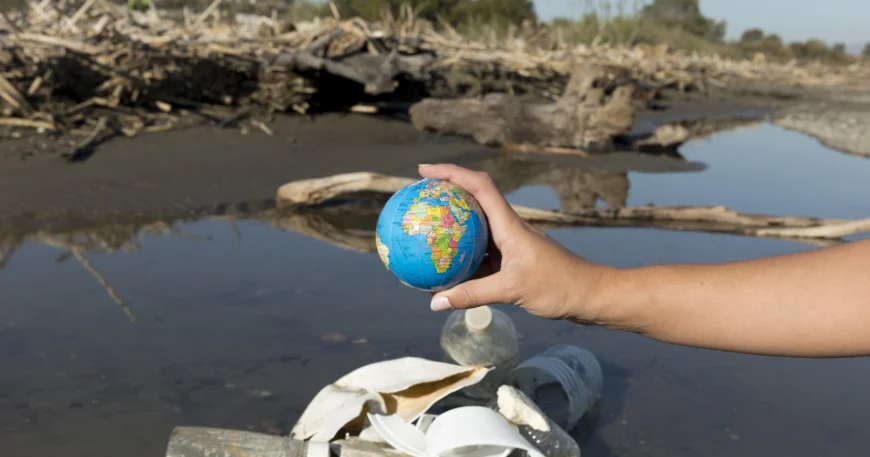The Importance of Wastewater Recycling: Turning Waste into Resources
As the global population grows and water scarcity becomes a more pressing issue, traditional water sources are becoming less reliable and more expensive. In the face of these challenges, one solution is gaining significant traction: wastewater recycling. By treating and reusing wastewater, we can not only conserve fresh water but also unlock valuable resources that are often discarded. Wastewater recycling offers a sustainable way to ensure we have access to clean water while simultaneously addressing environmental concerns. Let’s explore why wastewater recycling is so important and how it helps turn waste into valuable resources.
What is Wastewater Recycling?
Wastewater recycling, also known as water reclamation, involves treating used water—such as sewage, industrial runoff, and storm water—to make it safe for reuse. Depending on the level of treatment, recycled wastewater can be used for a variety of purposes, including irrigation, industrial processes, landscaping, and even drinking water in some advanced systems.
The process typically involves multiple stages of filtration and disinfection to remove harmful contaminants. In many cases, advanced technologies like reverse osmosis, ultraviolet (UV) light, and biological filtration are used to ensure the water is safe and clean for its intended use.
Why Wastewater Recycling Matters
1. Addressing Water Scarcity
Water scarcity is one of the world’s most pressing challenges. As freshwater resources become increasingly stretched due to climate change, urbanization, and population growth, recycling wastewater provides a sustainable solution. By reusing treated wastewater, we can reduce the demand for fresh water sources, especially in regions that are facing droughts or have limited access to clean water.
In fact, some regions like California, Australia, and parts of the Middle East are already leading the way in wastewater recycling to ensure a consistent supply of water in areas that might otherwise be dependent on diminishing freshwater resources.
2. Reducing Environmental Pollution
When wastewater is not treated properly and is released directly into rivers, lakes, or oceans, it can have devastating effects on ecosystems. Untreated water often contains harmful pathogens, chemicals, and nutrients like nitrogen and phosphorus, which can lead to algal blooms, oxygen depletion, and the destruction of marine life. By recycling wastewater, we can prevent the contamination of natural water bodies and protect both terrestrial and aquatic ecosystems.
3. Conserving Freshwater for Critical Uses
Recycling wastewater for non-potable uses—such as industrial cooling, irrigation, or toilet flushing—means we can reserve freshwater for essential needs, like drinking, cooking, and sanitation. In many parts of the world, freshwater resources are becoming increasingly stressed, and using treated wastewater for less critical purposes helps conserve the limited supplies of clean, drinkable water.
4. Creating a Circular Water Economy
Wastewater recycling supports a circular water economy, where water is used and reused within a sustainable, closed-loop system. Instead of extracting more water from natural sources or sending wastewater to be disposed of, we can keep it in circulation by treating and reusing it. This reduces our reliance on new water sources, cuts down on wastewater treatment costs, and lowers the environmental impact of water extraction and disposal.
5. Unlocking Valuable Resources from Wastewater
Wastewater is more than just water—it’s a valuable resource in its own right. Through wastewater treatment, we can recover various materials that can be repurposed for other uses, including:
- Energy: Wastewater treatment processes, such as anaerobic digestion, generate biogas (methane), which can be captured and used for energy production. This biogas can power wastewater treatment facilities or even be sold to power grids.
- Nutrients: Wastewater contains valuable nutrients like nitrogen and phosphorus, which can be used as fertilizers in agriculture. Recovering these nutrients helps reduce the need for synthetic fertilizers, which are often harmful to the environment.
- Water: Of course, the primary resource recovered from wastewater is clean water itself. In advanced treatment systems, recycled water can be purified to a level that is safe for potable use, effectively increasing the available water supply.
Technologies Driving Wastewater Recycling
Recent advancements in technology are making wastewater recycling more efficient and cost-effective. Some of the key technologies used in wastewater treatment and recycling include:
- Reverse Osmosis (RO): A filtration process that removes contaminants by pushing water through a semipermeable membrane. RO can remove a wide range of pollutants and is often used in desalination and water purification.
- Membrane Bioreactors (MBRs): A combination of biological treatment and membrane filtration, MBRs allow for higher-quality water recovery and smaller treatment plant footprints.
- Ultraviolet (UV) Disinfection: UV light is used to kill bacteria and viruses in treated wastewater, making it safe for reuse in non-potable applications.
- Constructed Wetlands: These natural treatment systems use plants and soil to filter wastewater, providing an eco-friendly solution for smaller-scale water reclamation projects.
Applications of Recycled Wastewater
The potential uses for recycled wastewater are vast, including:
- Agriculture: Irrigating crops with recycled water is one of the most common applications. Recycled water helps maintain healthy crops while conserving freshwater resources.
- Industrial Processes: Industries, especially those in water-intensive sectors like manufacturing, power generation, and mining, can benefit from using recycled wastewater in cooling systems, processing, or cleaning.
- Landscaping: Municipalities and private property owners can use recycled water for irrigation in parks, golf courses, and gardens, reducing the demand on drinking water supplies.
- Drinking Water: In some regions, advanced treatment technologies allow wastewater to be purified to drinking water standards. This practice, known as potable reuse or “direct potable reuse,” is already being implemented in places like Singapore and parts of the U.S.
The Future of Wastewater Recycling
As technology continues to improve, the future of wastewater recycling looks promising. With more efficient systems, greater public acceptance, and a growing recognition of the need for sustainable water management, wastewater recycling will play an increasingly important role in solving water scarcity and reducing environmental impact.
Incorporating wastewater recycling into urban planning, industrial processes, and agriculture is crucial for creating resilient and sustainable communities that can thrive in an era of climate change and resource limitations.
Conclusion :
Wastewater recycling is more than just a solution to wastewater management—it’s a critical tool in conserving our precious freshwater resources, protecting the environment, and creating a circular water economy. By treating and reusing wastewater, we can turn what was once considered waste into valuable resources for agriculture, industry, and even drinking water. As the technology improves and adoption increases, wastewater recycling will become a cornerstone of sustainable water management across the globe.






